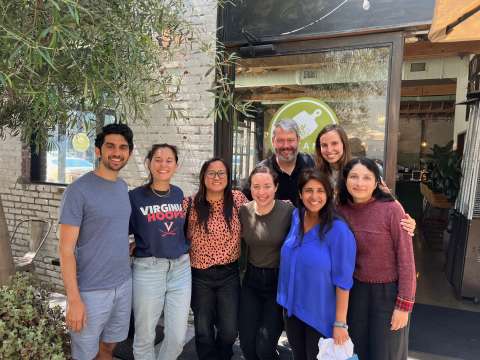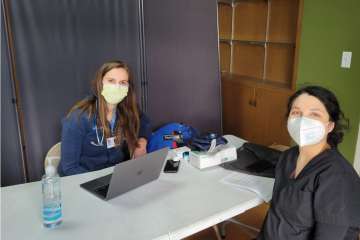Internal Medicine Residency Program
Health Equity & Advocacy

Mission
The mission of the Health Equity & Advocacy Pathway is to train residents interested understanding and mitigating health disparities in the United States and engaging in advocacy.
Goals
The pathway emphasizes clinical training with underserved populations, but also aims to train residents in advocacy, medical and community education, and health systems/quality improvement research.
We are able to accommodate 6-8 residents (2nd year medicine or 3rd year medicine-pediatrics residents) each year in the pathway. While we do our best to accommodate all interested residents, the total number accepted will depend on clinical site capacity.
Pathway Components
- ½ day continuity clinical site (TBD based on interest and clinical availability)
- 2 week clinical or research elective per year
- Scholarly activity (i.e. research, QI, medical education, advocacy project)
Curriculum Overview

- Monthly seminars: On various topics in health disparities and social/structural determinants of health including homeless and street medicine, food insecurity, gender health, interpersonal and structural violence, incarceration, impact of racism on health, language barriers and health literacy, substance use disorders, immigrant and refugee health, infectious diseases in vulnerable populations, and the effect of the built environment and climate change on health.
- Clinical Experiences: Continuity and elective experiences in street medicine/homeless outreach (through the Venice Family Clinic), gender health clinic, substance use disorder clinics, refugee health, food pantry, TB/STD/HIV clinics, and Indigenous/Native American health clinics.
- Scholarly work: Research in health services, quality improvement, medical education, and community education.
- Advocacy: On local, state, and national levels.

